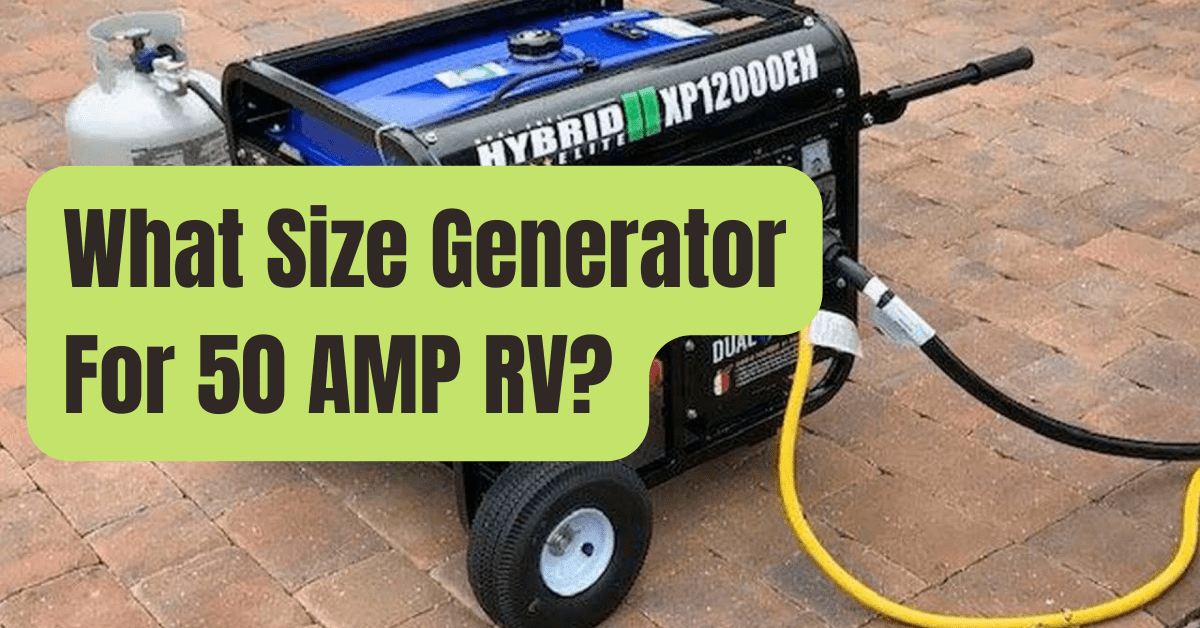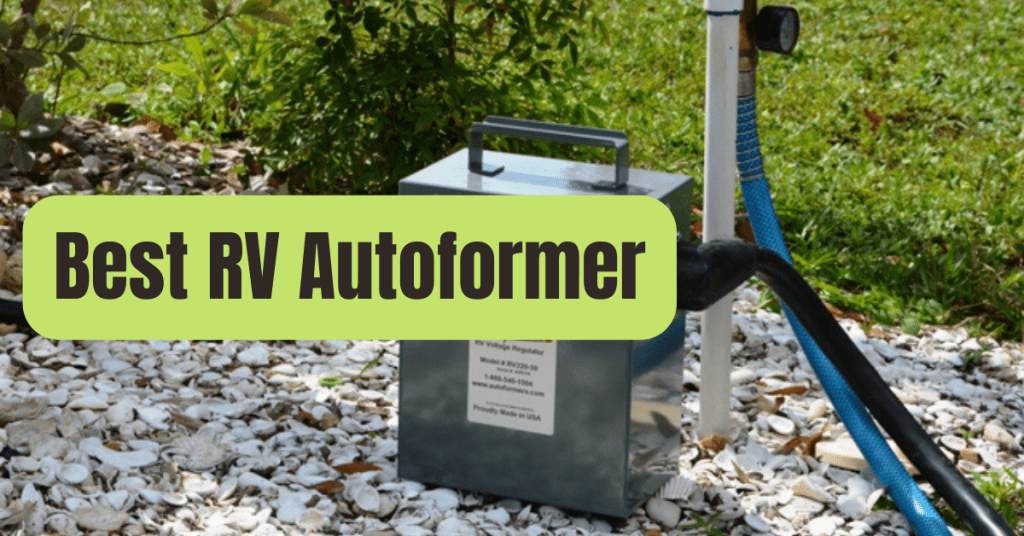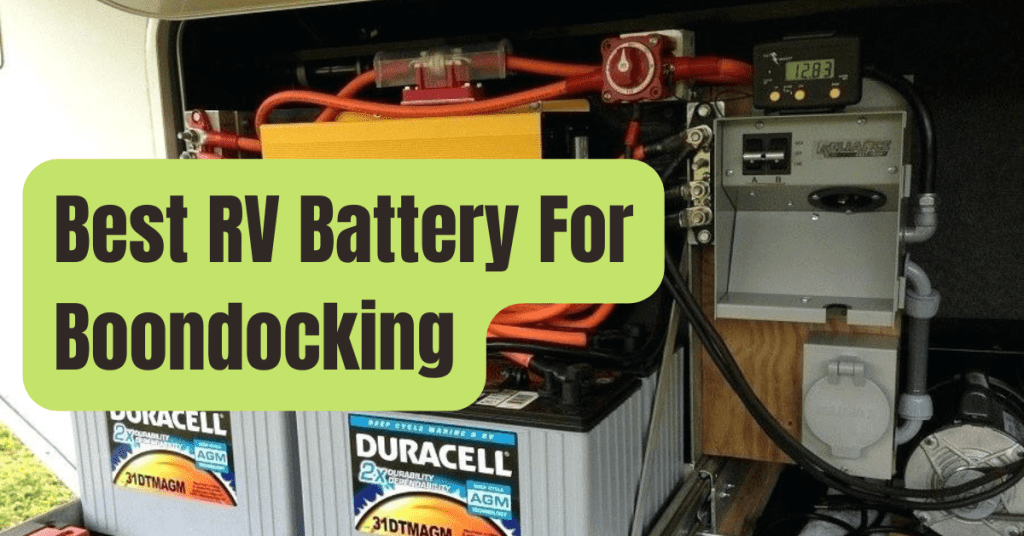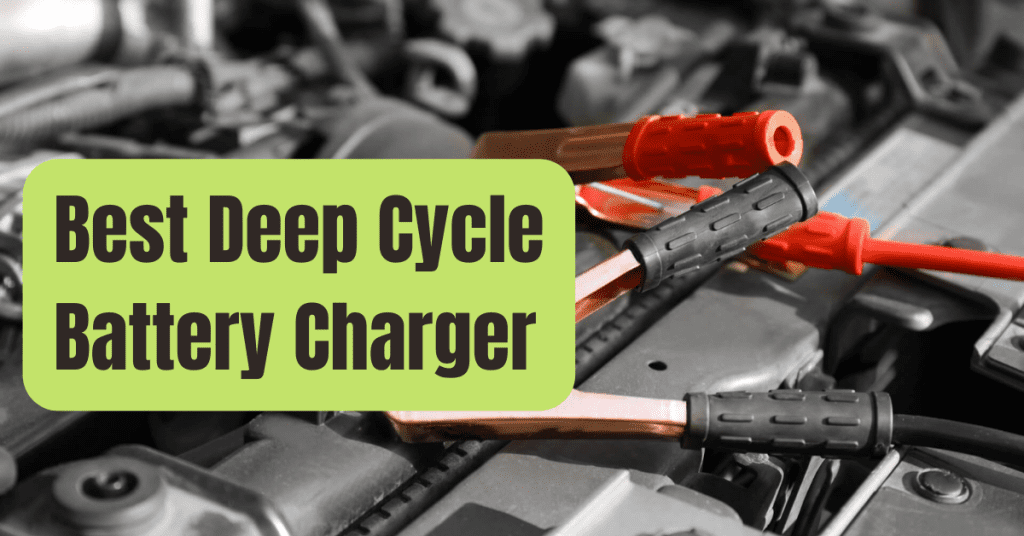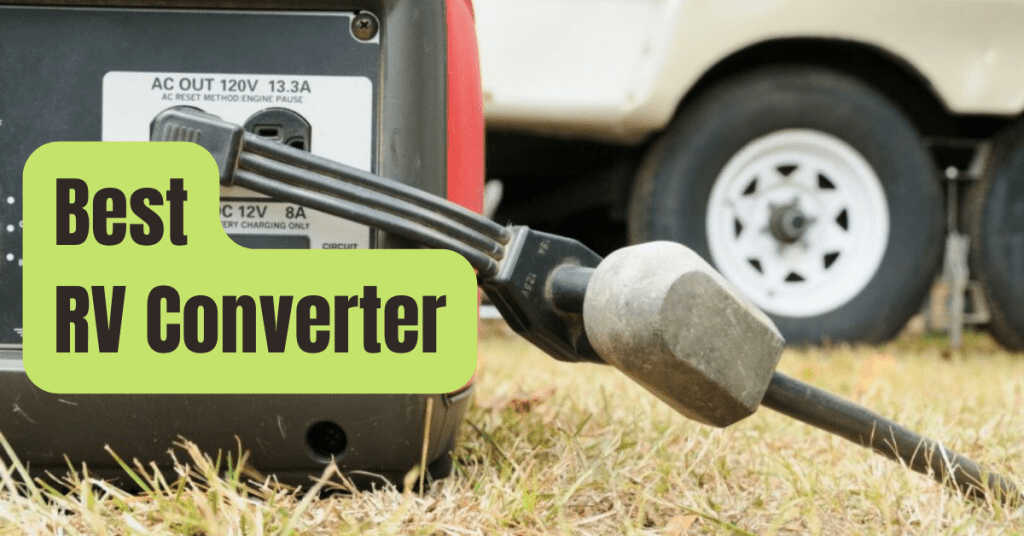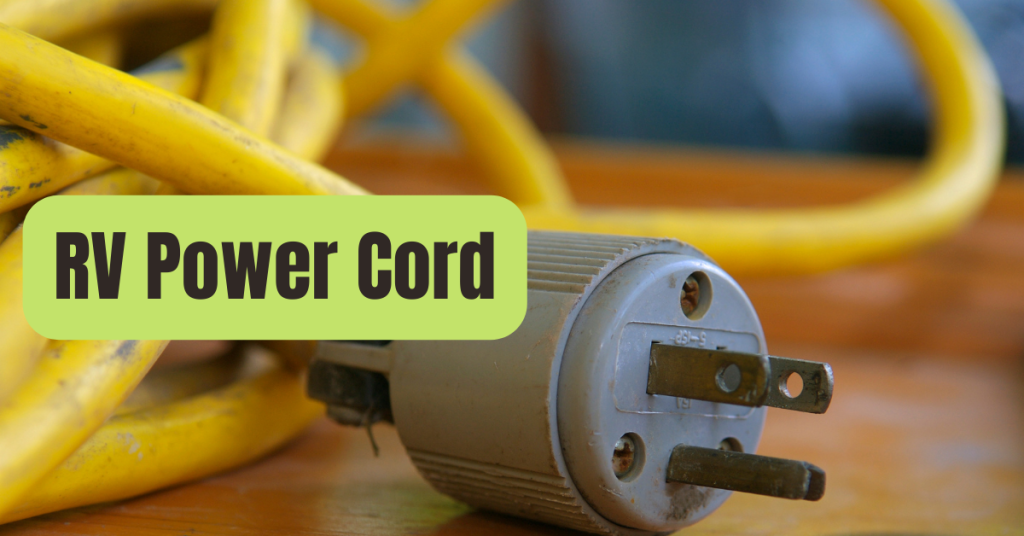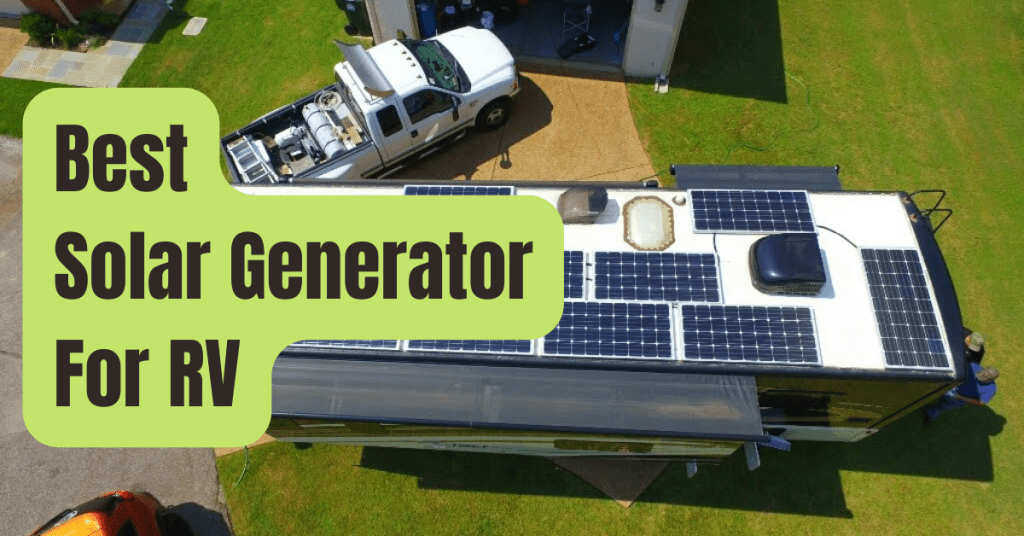A 50-amp service is required by many contemporary RVs.
Unfortunately, in certain areas, the number of RV parks or resorts that provide this service is limited.
It’s essential to have a generator aboard that can offer enough power to your 50 amp RV, especially if you want to go to more remote areas with your RV.
Trying to figure out how many watts your RV uses at any particular moment might be difficult.
You’ll need to know about the electrical requirements for your major appliances, as well as the wall outlets where you plug in your cellphones and other electronic devices.
So, how big should a generator be for a 50-amp RV? The smallest generator possible For a 50 amp RV, I suggest going with a 4,000 watt generator.
Although the size of the generator you need will be determined by the ratings of your individual appliances as well as how many appliances you generally operate at once.
However, if you operate many appliances at the same time, your power demands may surpass that limit.
In the rest of this post, I’ll show you how to figure out what your RV’s electrical demands are so you can choose the best generator for 50 amp RV usage.
I’ll also go over four great portable generators that can handle 50 amps and address some of the most common concerns concerning 50 amp electrical service.
How to Select the Correct Generator Size for a 50 Amp RV
While 4,000 watts is a good starting point, there are other additional aspects to consider before deciding on the best generator for your requirements.
Choose one of the three power-outage scenarios below to help you choose the correct size generator for your 50 amp RV.
Let’s start with how to calculate your RV’s electrical requirements, and then look at a few additional considerations that may influence your ultimate buying choice.
#1. Calculating How Many Watts A 50 Amp RV Consumes
To comprehend your electrical requirements, we must first comprehend the maximum watts offered by a 50 amp service.
Because a 50 amp socket contains two 120-volt hot wires, a 50 amp service may provide a total of 12,000 watts.
This is referred to as a 120/240 split service by some.
In a 50 amp service RV, multiplying amps by volts is the formula for obtaining watts.
We can acquire a 6,000 watt rating by multiplying 50 amps by 120 volts.
However, since a 50 amp connection contains two hot wires, we may increase the power to a maximum of 12,00 watts.
However, we must exercise caution here since it is all too simple to conclude that the generator you choose should be capable of supplying 12,000 watts.
However, this isn’t always the case.
A generator with that much power may be quite costly, and it will supply much more electricity than you could ever need.
#2. Identifying Your Electrical Requirements
The starting and operating wattages for your different equipment must be carefully considered when determining your RV’s electrical demands.
The amount of electricity required to start an appliance is referred to as startup watts.
The amount of electricity required to keep an appliance operating is known as running watts.
Startup wattage is often greater than operating watts, as seen in the chart below from Honda.
| Appliance | Microwave oven |
| Starting wattage | 1,000/1,300/1,500 |
| Running wattage | 1,000/1,300/1,500 |
| Appliance | RV refrigerator |
| Starting wattage | 600 |
| Running wattage | 180 |
| Appliance | Electric grill |
| Starting wattage | 1,650 |
| Running wattage | 1,600 |
| Appliance | Coffee maker |
| Starting wattage | 800 |
| Running wattage | 800 |
| Appliance | Blender |
| Starting wattage | 850 |
| Running wattage | 400 |
| Appliance | Satellite receiver |
| Starting wattage | 250 |
| Running wattage | 240 |
| Appliance | Radio |
| Starting wattage | 50-200 |
| Running wattage | 50-200 |
| Appliance | Laptop |
| Starting wattage | 200-250 |
| Running wattage | 200-250 |
| Appliance | Toaster |
| Starting wattage | 1,150 |
| Running wattage | 1,150 |
| Appliance | TV |
| Starting wattage | 200 to 600 |
| Running wattage | 200 to 600 |
It’s worth noting, nevertheless, that the electrical ratings of the appliances may vary from those shown in this chart.
These are only estimates to help you figure out which appliances in your 50 amp RV will use the most electricity.
#3. Selecting an Appropriate Wattage For Your 50 Amp RV
Let’s have a look at how to pick adequate watts for your 50 amp RV’s individual requirements.
Let’s start by distinguishing between beginning and operating watts.
The appliances in your RV will use more electricity when they first turn on than they will after they’re up and running.
This implies that rather of concentrating on operating wattage, you should prioritize obtaining a generator that provides adequate starter wattage for your equipment.
Whether you have one or two air conditioning systems on your trailer will be the most important aspect in determining the demands of a 50 amp RV.
A 4,000-watt generator would most likely enough for a 50 amp RV with a single air conditioning unit.
However, adding a second 15,000 BTU A/C to your starting may significantly increase your initial power needs.
When figuring how much watts you’ll need in a generator, start by calculating the beginning wattage for your RV’s major appliances.
| RV Air Conditioner Size | 7000 BTU |
| Starting wattage | 1700 Watts |
| Running wattage | 600 Watts |
| RV Air Conditioner Size | 10,000 BTU |
| Starting wattage | 2000 Watts |
| Running wattage | 700 Watts |
| RV Air Conditioner Size | 13,500 BTU |
| Starting wattage | 2700 Watts |
| Running wattage | 1250 Watts |
| RV Air Conditioner Size | 15,000 BTU |
| Starting wattage | 3500 Watts |
| Running wattage | 1500 Watts |
The air conditioning unit (or units), refrigerator, and microwave are three of the most power-hungry equipment in a standard RV.
While it may be tempting to just tally up the starting wattages for all of your appliances and then purchase a generator that satisfies that rating, this is sometimes a way of splurging on a huge generator that you may not want.
To begin with, you probably aren’t (and shouldn’t be) operating all of your appliances at once.
Running just particular appliances at the same time is a terrific method to lower your total power demands while also extending the engine life of the generator you do choose.
It should also be mentioned that purchasing a generator with more watts than you need is simply a waste of money.
It’s pointless to invest in a 12,000-watt generator if you’re only using it to power equipment that need less than 6,000 watts.
At that time, you’ll have 6,000 watts of wasted energy, and your business will be inefficient overall.
What to Look For When Purchasing A 50 Amp RV Generator
#1. Weight of the Generator
Due to the bigger engines used in 50 amp RV generators, they weigh more than smaller versions.
This, by definition, makes them less portable.
Despite the fact that certain versions have wheels to assist you move them around, there will definitely be times when you’ll need to lift one of these generators.
So, before making a selection, make sure you’re okay with the weight of the generator you’re considering.
#2. Do You Have A Parallel Connection?
Certain generators may be connected to another generator of a similar brand to offer extra power for your RV.
While most 30 amp RVs may not need this extra power, those desiring a 50 amp service should take this into account.
Although these generators are designed to provide adequate initial watts for a normal RV air conditioning unit, operating your A/C, refrigerator, microwave, and fans while plugging several gadgets into wall outlets may overload your generator, causing it to fall short of your power requirements.
While we’ve already discussed why you shouldn’t operate all of your appliances at the same time, choosing a generator with parallel capabilities will enable you to enhance the amount of power delivered to your RV if the need arises.
#3. Type of Fuel
The majority of generators operate on gas, propane, or diesel fuel.
Some generators are referred to as ‘dual fuel’ generators because they can operate on a variety of fuel sources.
Because gasoline and propane are more easily accessible than diesel fuel, they are the most popular fuel combinations utilized by dual fuel generators.
It’s logical to choose a generator that uses the same sort of gasoline as your RV.
Diesel RVers, as well as RVers with gas-powered rigs, may simply stock up on that fuel type for their generator whenever they stop for gas.
The key benefit of a propane generator is the fuel’s long shelf life (when compared to gas and diesel fuel).
Access to a dependable propane refill station, on the other hand, will determine whether or not a propane generator is appropriate for you.
#4. Noise Emission
While many of these 50 amp RV generators claim to employ “Quiet Technology,” while they do create less noise than some of their predecessors, they aren’t fully quiet.
When they’re running, they’ll make between 55 and 70 decibels, and some only make the least noise when they’re in Eco-Mode, which is normally at 25 or 50 percent load.
As a result, don’t be shocked if the generator you buy generates more noise than indicated while it’s running at full capacity.
However, noise production is a vital consideration since you’ll want something that won’t keep you awake at night or irritate your RV park neighbors.
Having saying that, I wouldn’t prioritize this criteria above the ones listed above.
In [Year], The Top Four Best Generators For 50 Amp RVs
What is the finest generator with a 50 amp RV plug?
You now know that the answer to this question is contingent on a variety of considerations specific to your RV lifestyle.
As a result, in this part, I’ll go through four of the finest portable generators with 50 amp RV plugs.
So here are the top four 50 amp RV generators.
#1. Best Overall: Westinghouse IPro4200 Inverter Generator For RV
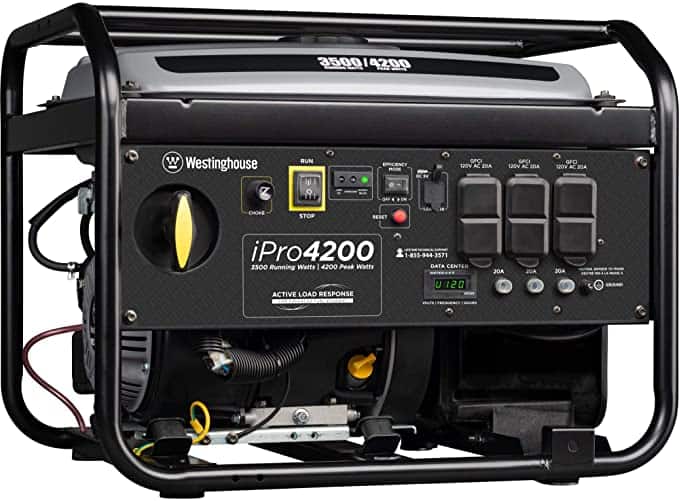
The Westinghouse iPro4200 is an industrial-grade portable generator that has shown to be reliable on construction sites.
That’s why many professional contractors use these generators to power their diverse range of power equipment on the job.
With a 2.6-gallon fuel tank, you can operate this generator at 25% of its entire load capacity for up to 18 hours.
This generator’s peak power rating of 4,200 watts ensures that even the biggest RV air conditioning systems can start and operate reliably.
Things We Enjoy
- Geared For Industrial Grade Use: Professional contractors rely on us.
- Fuel-Efficient: At a 25% load, it can operate for up to 18 hours.
- High Peak Wattage: It has a max power rating of 4,200 watts.
Things We Don’t Appreciate
- Requires Electrical Adapter: To efficiently transmit electricity to a 50 amp RV, this generator’s three 120-volt 20 amp ports will need an adaptor.
#2. Best For Cold Climates: Champion 3800-Watt Dual Fuel RV Ready Portable Generator

Although many people purchase RVs particularly to be able to relocate when the weather turns cold, the Champion 3800-watt Dual Fuel generator with Cold Start Technology is ideal for those of us who choose to spend the winter in our vehicles.
You’ll be delighted this generator can operate on either propane or gas in the case of a fuel scarcity of any kind.
The amount of time it takes to complete a run depends on the sort of gasoline you’re using.
It also has a built-in surge protector to safeguard your RV’s equipment from power surges and overloads.
Things We Enjoy
- Dual Fuel Generator: It may be powered by either gasoline or propane.
- Cold Start Technology: Even in chilly conditions, it ensures a speedy start.
- Built-in Surge Protector: Overloads are avoided, and appliances are kept secure.
Things We Don’t Appreciate
- Run Times: On gasoline, the run duration is 10.5 hours at half load; on propane, the run time is 9 hours.
Weight: Nearly 120 pounds, making it challenging to lift if necessary.
#3. Best Budget: DuroStar DS4000s 4000 Watt 50 Amp RV Generator
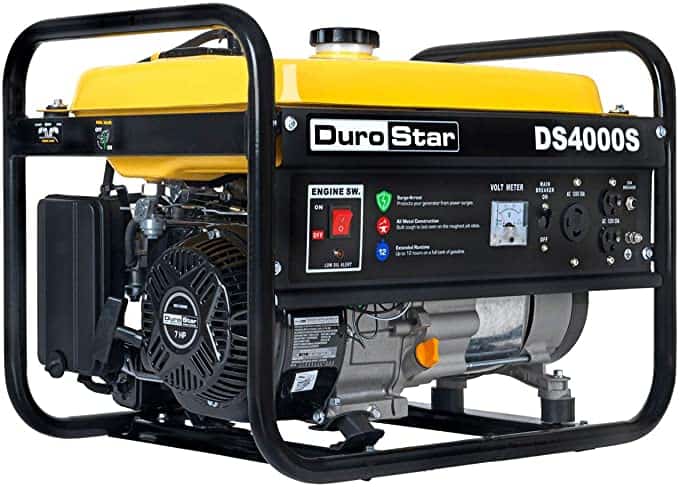
Some of these 50 amp RV generators might be pricy, but the DuroStar DS4000s is a cost-effective alternative that will still provide enough power to run a huge 15,000 BTU air conditioner.
It’s built to resist the rigors of construction sites, so it’s also an excellent generator for individuals who live in areas where bad weather is common.
The low-oil shutdown mechanism on this generator helps to prevent the engine from running dry, extending the engine’s overall life.
It also serves as a reminder that you haven’t topped up the oil in a while.
The one drawback is that you’ll need a dogbone adaptor to hook in your 50 amp RV since this generator has a 120-volt 30 amp plug and two 120-volt 20 amp outlets.
Things We Enjoy
- Durable Construction: The all-metal design is built to withstand the rigors of construction sites.
- Ample Peak Watts: It has a peak power of 4,000 watts and an operating power of 3,300 watts.
- Low Oil Shutoff: When the oil level lowers, the engine is protected.
Things We Don’t Appreciate
- Requires Dogbone Adapter: To power a 50 amp RV with this generator, you’ll need to buy an extra dogbone adaptor.
#4. Best for Quiet Operation: Champion 4000-Watt RV Ready DH Series Quiet RV Generator
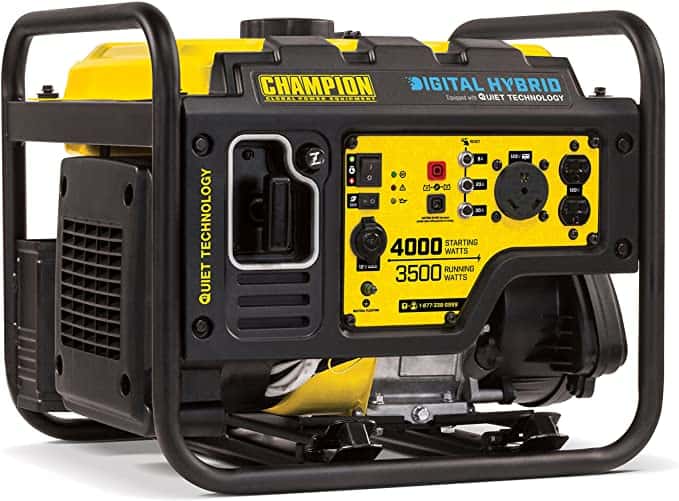
The Champion 4000-watt DH Series generator has a noise output of only 64 decibels while operating at 25% load, making it a great alternative for individuals who don’t want to annoy their RV park neighbors with a noisy generator.
It has a 2.9-gallon gas tank, which allows it to operate for up to 17 hours at a 25% load, the longest of any Champion generator.
This generator has a peak capacity of 4,000 watts and an operating power of 3,500 watts.
It may also be linked to two 2800 watt inverter or digital hybrid generators to give extra power for your 50 amp RV.
You’ll need to buy an extra parallel connection kit to do this, but it’s a terrific alternative for RVers in hot regions who require electricity for two huge air conditioners.
Things We Enjoy
Quiet Technology: The noise output is just 64 dB.
Parallel Ready: For further power, connect two 2800-watt inverters or a digital hybrid.
Extended Run Time: At a 12 percent load, you may work for up to 17 hours.
Things We Don’t Appreciate
No Wheels: This makes it more difficult to move the generator.
FAQs
An RV’s power requirements are determined by the architecture of its electrical system.
I’ll address a few common questions regarding 50 amp service and how it varies from 30 amp service in this section.
What Does It Mean To Have A 50 Amp Service?
Multiplying amperage by voltage (amps x volts = watts) is the formula for computing the wattage of an electrical connection.
You obtain 6,000 watts by multiplying 50 amps by 120 volts (the rating for the hot wire on this sort of service).
50 amp plugs, on the other hand, feature two 120-volt hot wires.
This effectively gives you twice the power, or 12,000 watts of electrical capability.
This is known as a 120/240 split service in technical terminology.
Two 120-volt hot wires, a neutral, and a ground are included in a 50 amp service.
As a result, the overall wattage calculation looks more like this:
50 amps x (120 volts x 2) = 50 amps x 240 volts = 12,000 watts
What Is The Difference Between 50 Amp And 30 Amp Service?
The amount of hot wires in the connection is one of the key differences between a 50 amp and a 30 amp service.
A 50 amp service has two 120-volt hot wires, while a 30 amp service only has one.
When you add up the entire wattage for a 30 amp service, you’ll find that it delivers 3,600 watts (30 amps x 120 volts).
A 20 amp service is usually enough to run an air conditioner, microwave, refrigerator, television, and a few wall outlets, but a 50 amp service is far more powerful.
This is one of the reasons why many RVs with two air conditioners need a 50 amp connection.
Is it possible to plug a 50-amp RV into a 30-amp service?
Yes, a 50 amp RV may be plugged into a 30 amp service, however this is not advised.
In principle, using a dogbone electrical adaptor to connect a 50 amp RV into a 30 amp service is doable, but you’ll be restricted to 30 amp capacity, which may prevent you from using some 50 amp RV equipment.
Conclusion
I’ve personally experienced a lack of consistent service from my RV park’s electrical supply, and it’s not fun, particularly when you’re paying for energy you should be able to rely on.
Even if you just use it as a backup power source, a generator is required for a 50 amp RV.
In my lifetime, we’ve had to utilize our RV generator to supply backup power for our whole house on multiple occasions.
You’ll be pleased you bought that bigger portable generator to keep the lights on and the warmth running during a protracted power outage in your area!

